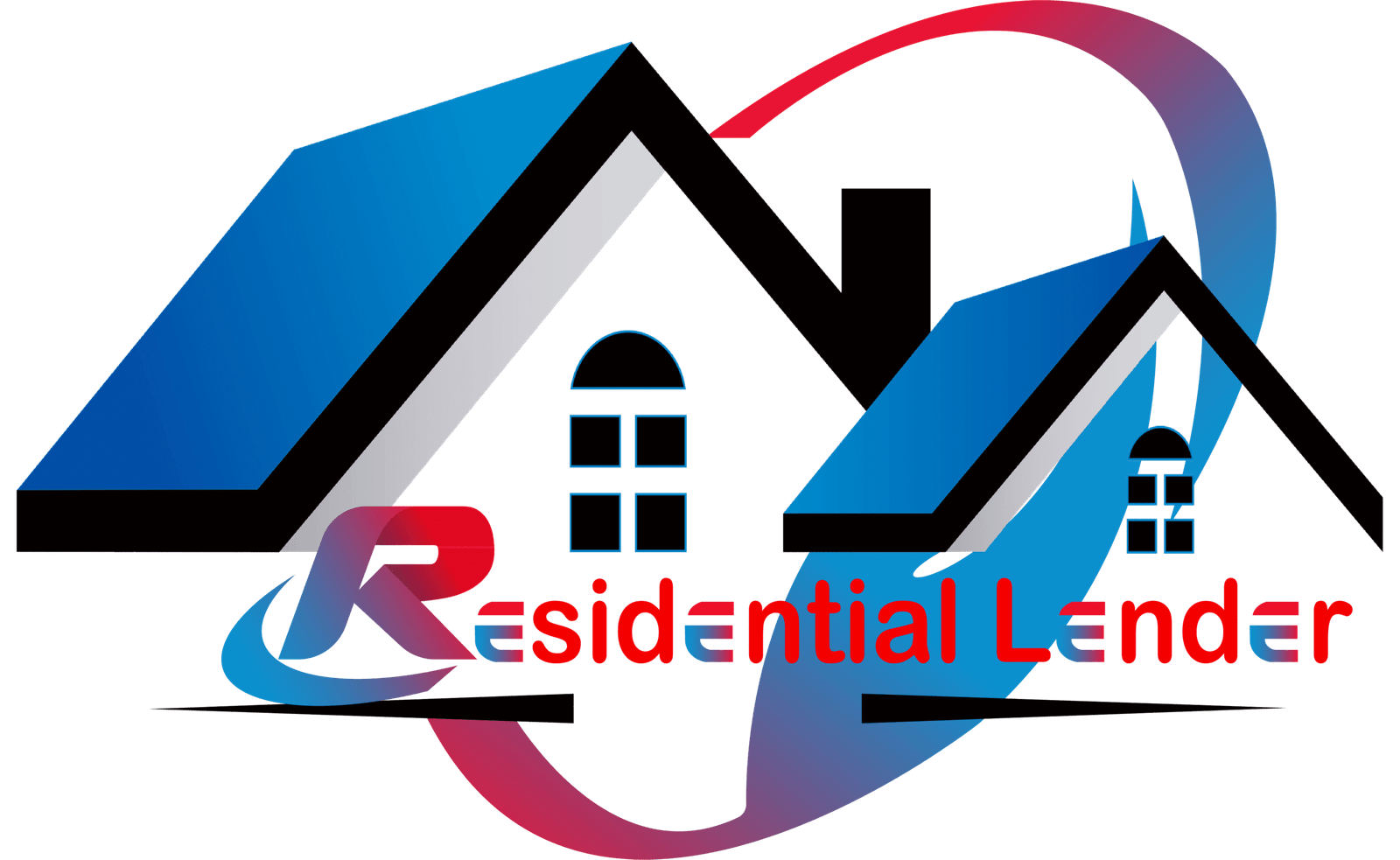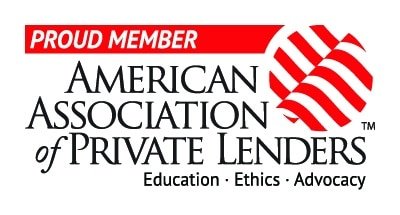Investing in real estate is a challenging and constantly evolving process. To build trust and achieve success, you need the right financial resources and a deep understanding of the problems owners face.
Residential Lender has been helping people buy and sell homes for 30 years. They can help you obtain business loans, which can make it easier to manage commercial debts and high interest rates.
With our network of 200 private lenders and investors, you can get more financing options for a broader range of real estate investment plans than you could get from a traditional bank.
There is complete help that makes the “Commercial loan application” process easier to handle. Owners and agents of real estate can use the tools in it to answer eight common questions.
FAQ 1: What defines a Commercial Loan Application, and How Does it differ from a Residential?
The commercial loan application is a vital tool for commercial real estate owners seeking to secure financing for their commercial properties or business ventures. It’s not like a personal loan or primary residence, as it involves a formal process that requires detailed information about the applicant’s financial situation and project.
Key Differences from Residential Mortgages
Commercial loans differ significantly from home mortgages in several key ways. These differences are primarily caused by the purpose of the loans and the associated risk levels of the assets being financed.
- Purpose & Property Type: Commercial loans are used for business or real estate investments. They can be used for a wide range of purposes, such as purchasing land, constructing homes, and investing in multiple properties. Residential loans are for homes that the borrower lives in, while commercial loans are for more usual business assets.
- Borrower Focus: While residential loans mostly look at a person’s income and “credit score,” industrial loans focus more on the health of the business’s finances, including its cash flow, revenue, and profitability. The property’s ability to generate income is often the primary focus, as that’s what the lender is looking for.
- Underwriting Criteria: The “underwriting” method for business loans is a lot more complicated and in-depth. It involves a thorough examination of specific property metrics, such as the Debt Service Coverage Ratio (DSCR) and Capitalization Rate (Cap Rate), as well as the borrower’s financial situation and current market conditions. Things are more standard and quicker when it comes to home underwriting.
- Loan Terms & Structure: For business loans, the “loan term” is usually shorter, running between 5 and 20 years. Hard money loans, on the other hand, typically have terms ranging from 6 to 24 months. For commercial loans, there may be “balloon payments,” which are significant payments that are due at the end of the loan term.” This is not the same as a home mortgage, which usually has a fixed, amortizing framework. There is also a chance that business loans will have higher “interest rates” than home loans.
Commercial properties pose different risks than homes owned by their owners. These risks include market fluctuations, unreliable tenants, high vacancy rates, and complex property management. Because they are perceived as taking on more risk, real estate owners may be subject to stricter rules, have to pay for loans with shorter terms, and incur higher interest rates.
Diverse Purposes for “Real Estate Investors”
Different “real estate investors” use other strategies, and each one needs a different kind of business financing. Residential Lender helps with many of these projects:
- Land acquisition refers to the process of acquiring funds to purchase unused land that will be utilized for future development.
- “Construction Project” or “Ground Up Construction” means giving money to start from scratch and build something new.
- Fix and flip refers to buying run-down homes, renovating them, and then selling them quickly for a profit.
- Fix and Hold/Fix and Rent: Fixing up buildings to own them for an extended period and generate a steady rental income.
- Mixed-Use Property: Lending money for properties that can be used for residential, business, or industrial purposes, all in one building.
- Investing in apartment buildings to buy or build is known as multifamily investment property.
- Rental Investment Property: Any property that is bought to make rental income, whether it’s a single-family home or a complex with several units.
FAQ 2: What Financial Documents Are Crucial for Your Application?
To obtain a commercial loan, lenders must assess your business’s financial health and ability to repay the loan. Residential Lender has been a reviewer for 30 years, which helps clients get ready for successful applications.
Required Business Financials
Lenders want a set of papers that show in detail how well your business has done in the past and how healthy it is now:
- Balance sheet: This record shows your company’s assets, liabilities, and equity at a specific point in time, providing a snapshot of its financial situation. It informs lenders about the company’s worth and its ability to pay its debts.
- Profit and Loss Statement (Income Statement): This statement, which is also called a P&L, shows your company’s income, costs, and profits (or losses) for a specific period, usually a quarter or a year. It shows that the business is operationally profitable.
- Cash Flow Statement: This is crucial because it reveals the amount of cash your business generates and the amount it spends over time. Lenders look at this to make sure that your company generates enough cash flow to meet its “money loan” repayment obligations regularly.
- Tax Returns: Lenders typically require your business and personal tax returns from the last two to three years. These provide you with verified numbers for your income and sales, ensuring that others can trust your financial records.
- Accounts Receivable/Payable Aging: These reports show the amount of money still owed to and received by your business, as well as the amount still owed by your company to others. They tell you how efficient your operations are and how much cash you have on hand in the short term.
Lenders closely examine a business’s tax returns and financial records to assess its income, profitability, and cash flow. Usually, they need years of data.
The Importance of “Credit Score” and “Track Record”
Aside from the raw financial data, lenders also look at how you’ve handled money and run your business in the past.
- Personal and Business “Credit Score”: Personal and business FICO scores are essential for managing credit, getting loans, and paying them back on time because they help lenders figure out how much debt someone has and how much they will pay back in the future.
- “Track Record”: Lenders assess a company’s “track record” of managing debt and past performance, considering projects, operations, and financial commitments that have been successfully fulfilled. Strong personal finances or a well-thought-out business plan can be used as reasons to excuse something.
Lenders assess the entire risk of a borrower, focusing on past performance and open communication to ensure transparency and accountability. They verify the borrower’s history, knowledge, and ability to handle problems. Residential Lender’s 30 years of experience as a reviewer helps clients make a strong case, which increases their chances of being approved.
Financial Projections: Your Future Story
Lenders must also consider the future possibilities of the loans. Almost always, you’ll have to give correct monthly predictions for the next year and correct yearly predictions for the next three years. The projections are important because they show how the “money loan” will help your business grow and how the expected success will let you pay it back. This look into the future gives the lender confidence in your long-term plans and your ability to repay the loan.
FAQ 3: How Do Lenders Evaluate Your Business Plan and Project?
The business plan serves as a strategic map for securing a commercial loan. It shows the lender your vision, strategy, and road map for success, which affects their trust in you.
The Business Plan as Your Blueprint
A well-organized business plan is crucial for applying for a commercial loan, as it clearly outlines the company’s mission, market position, and growth potential, which gives lenders confidence that the loan will be repaid.
Key Components Lenders Scrutinize
An Analysis of the Business Plan for Lenders
- Executive Summary: Describes the company, the project, and the request for money.
- Company Description and Organization: This section provides an overview of the company’s organizational structure and ownership details.
- Market analysis provides valuable insights into your business, target audience, and competitors.
- The operational strategy outlines the day-to-day activities, goods or services, pricing strategies, and the organizational structure of the business.
- Financial projections display forecasts of revenue, cash flow, and the ability to repay the loan.
- Use of Funds: This section outlines how the loan funds will be utilized and how they will contribute to the business’s long-term objectives.
Lenders are more likely to trust business plans and estimates that are more detailed and comprehensive.
Project-Specific Considerations
The type of project you’re working on has a significant impact on how lenders view your plan.
- When deciding between a “construction project” and an existing property, lenders look at things like construction costs, timelines, pre-leasing efforts, market demand, performance, lease expirations, and market rents for new projects since they require a significant upfront investment.
- Feasibility and Viability: Lenders must make sure that the property makes enough money to cover the “money loan” payments. They typically do this by reviewing pro forma statements, rent rolls, and past operating statements.
Residential Lender helps commercial real estate lenders create thorough business plans that lower risk and increase approval chances, especially for high-risk projects like construction financing.
FAQ 4: Understanding Collateral, Loan-to-Value (LTV), and Asset-Based Lending
In commercial lending, collateral is significant because it protects the lender and lowers the risk. Real estate investors need to be aware of collateral assessment measures, such as Loan-to-Value (LTV).
Collateral: The Lender’s Security
As long as a borrower pledges collateral, the lender can seize it and sell it if the borrower fails to repay the loan. The terms of the loan depend a lot on the type and value of the collateral.
“Loan to Value” and “LTV Ratio” Explained
The “loan-to-value” and “LTV ratio” are significant number that affects how risky the lender thinks you are and the terms of your “money loan.”
- The “Loan to value (LTV) ratio” is a method for comparing the amount you are borrowing (the loan capital) to the property’s value.
- Changes: The loan-to-value (LTV) ratio decreases when the down payment is larger. This means that lenders are taking on less risk, resulting in more favorable interest rates and loan terms. A down payment of 10% to 30% is typical for commercial loans.
The Loan-to-Value (LTV) ratio indicates a borrower’s level of commitment and willingness to take on risk. A smaller ratio means that the investor has a significant stake in the project, aligning their financial goals with those of the lender. This protects against market downturns and drops in property prices.
“Asset-Based” Lending as an Alternative
Asset-based lending provides companies and real estate investors who don’t meet the strict requirements of traditional banks or lack substantial tangible assets with a flexible means of obtaining capital.
What it means: Businesses use their assets as collateral for a loan in asset-based lending. Assets such as inventory, accounts receivable, tools, property, and even intellectual property can be used as additional collateral.
Benefit: As it focuses on collateral value and liquidity, this method is suitable for businesses that have liquid assets but bad credit or weak cash flow.
The growth of “asset-based” lending and “hard money loans” in real estate markets indicates a trend toward more adaptable ways to secure funding for various types of projects and borrowers. Another way to obtain money is through ResidentialLender.Net’s network of private lenders.
FAQ 5: What Types of Commercial Loans Can ResidentialLender.Net Facilitate?
Regular loans from banks are available for properties that are stable and don’t pose a significant risk. Still, they usually have strict standards for who can obtain them, such as requiring high credit scores, and the approval process can take a considerable amount of time. We offer a wide range of flexible financing options to meet the needs of all kinds of real estate buyers.
Residential Lender’s Diverse Offerings
Residential Lender is a flexible “money lender” with a network of 200 “private lenders” and investors that help with a wide range of business loan goods, such as
- Bridge loans: Short-term loans, which last between 6 and 24 months, can help real estate investors bridge cash gaps, buy properties quickly, reposition properties, or get permanent financing.
- Hard Money Loans: These loans are quick and flexible because they are based on the value of the property rather than the borrower’s credit score. Private lenders typically provide them and are best suited for fix-and-flip projects or those seeking quick funding.
- DSCR Loans: DSCR loans help you make money from your property and are great for buying rental or multifamily homes with a healthy amount of 1.25 or higher.
- USDA B&I Loans: USDA Business & Industry loans are backed by the government and designed to support companies in rural areas by offering favorable terms and promoting economic growth in these areas.
- SBA loans: The Small Business Administration offers government-backed loans, such as the 7(a) and 504 programs. These loans make it easier for small businesses to obtain financing by requiring lower down payments and longer repayment terms.
- FHA Commercial Property Investment Loans: These are loans backed by the Federal Housing Administration that can only be used for specific types of commercial properties and typically come with certain standards and benefits.
- “Construction Loans”: We offer short-term loans for building or renovating properties, which are repaid in installments as specific goals are met. These loans are necessary for big, start-from-scratch projects.
- “Term Loans” are regular loans with a set “loan term” that indicates how much you’ll have to pay each month for purposes such as buying property or meeting general business needs.
- No-Doc/Lite-Doc Loans: Real estate loans that require little to no paperwork are ideal for experienced owners with complex income streams, as they are based on the value of the collateral or the property’s cash flow.
- State Income Loans: These loans are based on alternative methods of proving income, such as bank statements and tax returns. They may offer you more options than standard loans, which typically require complete documentation.
We offer a range of loans tailored to meet the diverse needs of our clients at various stages of their projects and across different risk levels. They are a full-service “money lender” and problem-solvers, as they can adapt to other markets and work diligently to find the best solution for each client.
The Power of Our Network
We have an extensive network of 200 private lenders and investors, including specialized construction lenders. These lenders offer flexible terms and other financing options, which are very important for securing capital and finding customized solutions for complex building projects.
| Loan | TypeTypical Use CaseKey | Feature | Typical Loan Term (Months) | Typical Interest Rates (Approx.) |
| Conventional Loan | Stabilized income-producing properties | Lower rates, strict qualifications | 60-300 (5-25 years) | 2% – 11% |
| Hard Money Loan | “Fix and flip,” bridge financing, quick closings | Asset-based, fast approval, flexible terms | 6-24 | 10% – 20% |
| Bridge Loan | Short-term gap financing, property repositioning | Quick access to capital, short-term | 6-24 | Higher than conventional |
| Construction Loan | “Ground up construction,” major renovations | Phased disbursements (“draws”), short-term | 12-18 | Higher than permanent loans |
| SBA Loan (7a/504) | Owner-occupied properties, business expansion | Government-guaranteed, lower down payment | Up to 25 years (real estate) | Competitive, often capped |
| No-Doc/Lite-Doc Loan | Experienced investors, complex income | Minimal documentation, faster, higher rates | Varies | Higher than conventional |
| DSCR Loan | “Rental investment property,” “multifamily” | Based on property cash flow, not personal income | 60-360 (5-30 years) | Varies, competitive |
FAQ 6: What Happens During the Commercial Loan Underwriting Process?
Residential Lender’s 30 years of experience as an underwriter is critical in the screening process, which involves evaluating risk and deciding whether a loan should be approved or rejected. They help clients through this challenging phase.
“Underwriting”: The Lender’s Due Diligence
Lenders need to control risk and minimize loan risks through effective underwriting. It includes a thorough examination of the borrower’s finances, the property’s cash flow, and the current state of the real estate market. Borrowers can secure better interest rates and loan terms if the screening process is conducted effectively.
Key Areas of Assessment
Lenders look into a few important things during the “underwriting” phase:
- Lenders assess a borrower’s personal and business credit scores, their financial responsibility, and their past debt management to determine the likelihood of consistent loan repayment.
- Property Analysis: A professional assessment and inspection are conducted to determine the property’s market value, ensure it meets building codes, verify its structural soundness, and estimate the construction costs and timeline.
- Financial Analysis and Projections: Underwriters examine a company’s financial statements to determine the amount of cash the business anticipates having in the future and to assess whether the property can generate sufficient revenue to cover operating expenses and loan payments.
- Market Conditions: The investment is judged based on current market trends, the economy, job growth, population trends, and possible risks. This ensures that the investment aligns with market realities.
- Project-Specific Risks: When building a project, the costs, timelines, and efforts to find tenants before the building is completed receive the most attention. This reduces the risks associated with speculative development.
Underwriting measures such as DSCR, LTV, Cap Rate, NOI, and Debt Yield create a predictive risk model that helps lenders estimate how much money borrowers will have and how the market will perform in the future. This provides borrowers with a substantial risk profile and a competitive edge.
| Metric | Definition | What Lenders Look For |
| Debt Service Coverage Ratio (DSCR) | Measures the property’s ability to generate enough income to cover its debt payments. | Typically ≥ 1.25 |
| “Loan to Value LTV Ratio” | Compares the loan amount to the property’s appraised value. | Lower is better (e.g., 60-75% is common) |
| Capitalization Rate (Cap Rate) | Indicates the expected rate of return on an income-producing property (Net Operating Income / Market Value). | Varies by market and property type; lower values can indicate stability, while higher values can indicate risk or opportunity. |
| Net Operating Income (NOI) | The property’s income after operating expenses, but before debt service and taxes. | Higher NOI indicates stronger profitability and repayment capacity. |
| Debt Yield | Measures the property’s Net Operating Income against the total loan value (NOI / Loan Amount). | Higher indicates lower risk for the lender, as the property generates more income relative to the loan |
Timelines for Review and Approval
A significant amount of paperwork is typically required to apply for a commercial loan. This includes financial reviews, property evaluations, and legal checks. When an application is submitted, it may take a few months before the loan is accepted and the closing occurs.
It’s essential to maintain borrower standards by distinguishing between reaction times and approval times. Being honest, setting reasonable goals, and leveraging our 30 years of experience as underwriters can help expedite the approval process.
FAQ 7: Strategies to Enhance Your Commercial Loan Application Success
A successful commercial loan application requires careful planning, a well-thought-out presentation, and real estate investors and brokers taking the initiative, which increases the chances of approval and secures favorable terms.
Actionable Tips for “Real Estate Investors” and Brokers
- Thorough Documentation: For loan applications, ensure that all financial records, legal documents, and property information are accurate, up-to-date, and well-organized. If they aren’t, the application could be delayed or rejected, as lenders prefer submissions that are complete and concise.
- Active management of “credit score”: Keep an eye on your personal and company credit scores and work to improve them regularly. If you encounter any issues, please report them promptly and file a dispute to enhance your chances of approval, lower your interest rates, and secure better terms for your loan.
- Create an Effective Business Plan: A good business plan should clearly explain your goal and how you understand the market, and include a strong repayment plan. This will give the “money lender” confidence in your business’s ability to succeed and make money.
- Communication that is clear and open: Tell lenders about money problems, red flags from the past, and possible paperwork problems. Be clear about what’s going on and how you plan to fix it to make a good impression.
- Try to get pre-approval: Pre-approval for business mortgages demonstrates that you have the necessary funds to complete the purchase. It also gives you an edge in real estate markets, makes the buying process more manageable, and shows that you are serious about the process.
- Identify the pros and cons of your project: Focus on the positive aspects of your property or building project, such as its great location, good tenants, long-term leases, and recent renovations. Also, be aware of and take steps to address any problems or weaknesses that may arise.
Real estate investors can become active participants in business loan applications by taking steps such as maintaining accurate financial records, managing their credit responsibly, and communicating effectively with lenders. Our advice enables the company to become a strategic partner, which helps clients present the best case to private lenders and regular banks.
The ResidentialLender.Net Advantage
Commercial loan applications are more likely to be approved if you work with an expert money lender like ResidentialLender.Net. With 30 years of experience in underwriting, they understand what private and construction lenders want and how to optimize the application process for optimal results. They provide brokers with access to a wide range of financing options for various types of businesses through both exclusive and non-exclusive referral programs.
FAQ 8: Demystifying Commercial Loan Costs: Interest Rates and Fees
To determine the profitability of a money loan, real estate investors need to understand all aspects of it, including the interest rates and fees.
“Interest Rates”: Fixed vs. Variable
Interest rates are how much you have to pay money lenders to borrow money. Higher rates mean you’ll pay more overall over the life of the loan.
- Fixed-Rate: Fixed-rate loans offer stability and predictable monthly payments by locking in the interest rate for the entire loan term. This protects the user from market fluctuations and ensures budget certainty.
- Variable Rate: Interest rates on variable-rate loans are initially lower, but they can fluctuate depending on market conditions. This adds risk because payments may change without warning.
We help clients choose between set and variable interest rates based on their risk tolerance and expectations for the future performance of the real estate market. They help clients choose the best arrangement by using their knowledge of the market and 30 years of experience as underwriters.
Other Associated Fees and Costs
A “Commercial loan application” comes with several other fees and costs that “real estate investors” need to think about in addition to the “interest rates”:
- Origination Fees: This is how much the “money lender” charges to process and approve the “money loan.” Most of the time, they are a portion of the whole loan amount.
- Costs for a professional to value the property to determine its market value. This is an integral part of the “underwriting” process.
- Legal fees refer to the expenses incurred when hiring lawyers to review documents, conduct research, and advocate for the best interests of all parties involved in a transaction.
- The costs that arise at the end of the loan process are referred to as “closing costs.” These can include title insurance, escrow fees, recording fees, and other business fees.
- Due diligence fees refer to the expenses incurred for conducting additional studies on the property, including surveys, environmental reports, and assessments of the property’s condition.
- Redemption/Prepayment Penalties: Fees that the borrower may have to pay if they pay off the loan early, before the end of the agreed-upon “loan term.”
- Ongoing Costs: “Real estate investors” need to plan for more than just the loan. They also need to pay property taxes, insurance premiums, and upkeep for the business property.
We make it easy for borrowers to understand upfront costs so they don’t receive any unpleasant surprises. By explicitly teaching clients about the costs involved, the company builds trust and positions itself as an honest partner, fostering genuine relationships with clients.
Conclusion
Individuals seeking to purchase real estate may struggle to secure business loans. With the right person and assistance, the process can still go smoothly. It’s been around for 30 years.
We help with every step of the application process. This includes gathering information about finances, creating a business plan, and selecting the appropriate type of loan. We know how the screening process works.
All 200 private loans and investors work together, making it easy for both first-time sellers and experienced homebuyers.
We also encourage agents to work together by giving them specialized help and referral programs.
FAQs
What’s the fastest commercial loan type?
“Hard money loans” are the fastest way to get money, usually within 48 hours.” However, they have higher interest rates and a shorter loan term.”
Can I get a commercial loan with bad credit?
Yes, some “private lenders” or “hard money loans” care more about the value of the collateral than the borrower’s “credit score.”
Is owner-occupancy required for commercial loans?
Not at all. Many commercial loans, particularly those for “rental investment property” or “multifamily investment property,” are intended for investments that the borrower doesn’t own.
What is the importance of the loan-to-value (LTV) ratio?
The loan’s risk is shown by the LTV, which affects both the down payment you need and the loan amount a “money lender” will give.
What is “ground-up construction” financing?
This is about loans for starting from scratch when building a new home. It involves “construction lenders” and a careful review of the project.








